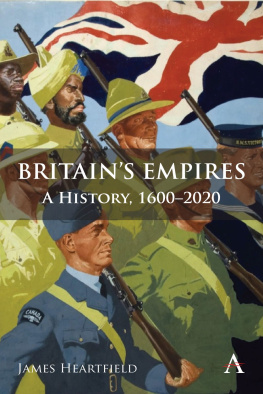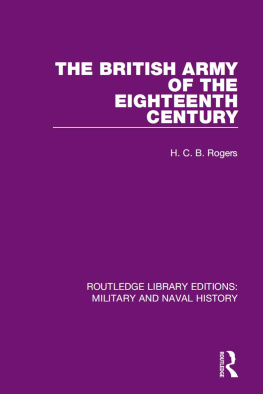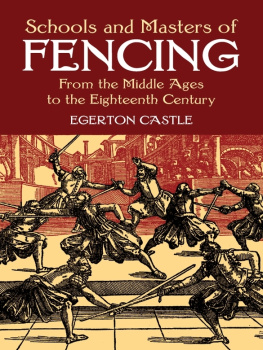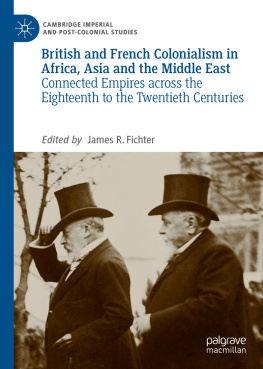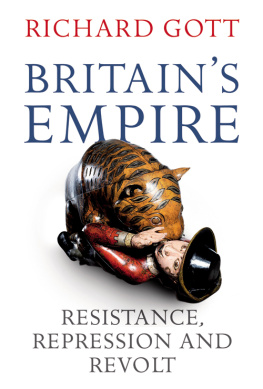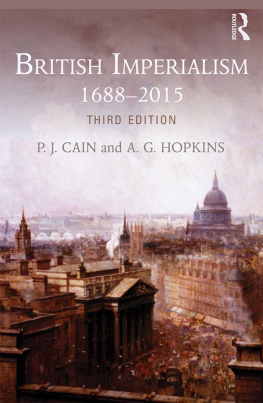Routledge Revivals
British Colonial Policy in the Twentieth Century
British Colonial Policy in the Twentieth Century
Hugh Edward Egerton
First published in 1922 by Methuen & Co., Ltd.
This edition first published in 2018 by Routledge
2 Park Square, Milton Park, Abingdon, Oxon, OX14 4RN
and by Routledge
711 Third Avenue, New York, NY 10017
Routledge is an imprint of the Taylor & Francis Group, an informa business
1922 by Taylor & Francis
All rights reserved. No part of this book may be reprinted or reproduced or utilised in any form or by any electronic, mechanical, or other means, now known or hereafter invented, including photocopying and recording, or in any information storage or retrieval system, without permission in writing from the publishers.
Publisher's Note
The publisher has gone to great lengths to ensure the quality of this reprint but points out that some imperfections in the original copies may be apparent.
Disclaimer
The publisher has made every effort to trace copyright holders and welcomes correspondence from those they have been unable to contact.
A Library of Congress record exists under ISBN: 23007312
ISBN 13: 978-1-138-60348-6 (hbk)
ISBN 13: 978-1-138-60349-3 (pbk)
ISBN 13: 978-0-429-46218-4 (ebk)
BRITISH COLONIAL POLICY IN THE XXTH CENTURY
BY
HUGH EDWARD EGERTON, M.A.
FELLOW OF ALL SOULS COLLEGE, OXFORD
SOMETIME BEIT PROFESSOR OF COLONIAL HISTORY, OXFORD
METHUEN & CO. LTD.
36 ESSEX STREET W.C.
LONDON
First Published in 1922
TO THE MEMORY OF
SIR GEORGE ROBERT PARKIN, K.C.M.G.
WHO THROUGH A MOST USEFUL AND STRENUOUS LIFE TAUGHT IN THE TWO HEMISPHERES THE FULL MEANING OF IMPERIAL CITIZENSHIP
Preface
ABOUT a quarter of a century ago, greatly daring, I sought to cover the whole field of British Colonial Policy in a single volume. If I had, at the time, read as much on the subject as I have had occasion to read in subsequent years, I might have shrunk from the attempt. Still, in spite of faults both of omission and commission, of which no one is more conscious than its author, the book was found to meet a want, and up to the present day still finds readers, not least, I am glad to recognize, in the Dominions. It has, therefore, seemed desirable to deal with the more recent history, though in a somewhat more intensive manner. I am well aware of the lions that stand in the path of a writer who attempts to treat of Dominion politics without a firsthand and intimate knowledge of those great communities. But, on the other hand, not every one has the necessary time and money at his disposal to make a personal investigation; and, ignorant as we in Great Britain may be of Dominion matters, the ignorance in one Dominion about what is happening in another is, I understand, yet more striking; so that a general conspectus of imperial policy is at least as difficult for a Canadian or Australian as it is for a mere Englishman. I have sought to atone for my ignorance of Dominion conditions by calling in aid the ipsissima verba of their statesmen and politicians, as reported in the Hansards. A Dominion minister may be expected to prophesy smooth things under the genial influence of an enthusiastic reception in Great Britain; but what he says in his own Parliament, when he is facing the music of an alert and critical Opposition, cannot but throw light on the trend of national opinion.
An apology is due for dealing, however briefly, with the well-worn theme of the probable character of the future relations between Great Britain and the Dominions; but the somewhat different standpoint from which the question is approached will, I trust, prevent what is said being a mere replica of what can be found in other books, some of no little ability. When strictly constitutional questions are concerned, I have gone very lightly over the ground that has been made his own by the highest living authority on the subject, Dr. A. B. Keith.
I have not attempted to deal with India, both because I am not competent to deal with it, and because, whatever the future may have in store, it is not, as yet, a Dominion.
In my short Second At the present moment, when men's hearts are not failing them for fear, their intellects are scornfully repudiating the traditions of the past. At a meeting of brilliant young University undergraduates any allusion to the white man's burden would be met, I expect, by jeers and questions. Still the burden remains, and the white man has, in the past, made good his claim of superiority. If he can do so in the future, we may smile at a passing phase of neurotic intellectualisrn. If he cannot, chaos will have come againfor more than the orderly progress of native communities.
In conclusion, I have to express my thanks to my guide, philosopher and friend in the study of colonial history, Sir Charles Lucas, who read the first three and the last three chapters in MSS. and the whole of the volume in proof. I am indebted to him for several corrections and suggestions. He is not, however, it is needless to add, responsible for any of the opinions expressed.
I have also to acknowledge the courtesy and assistance of the sub-librarian at the Colonial Office and of the librarian of the Royal Colonial Institute, than whom no one is doing better work on behalf of those studies which are connected with his office.
H. E, EGERTON
OXFORD
April, 1922
I had arranged to dedicate this little volume to my honoured and beloved friend Sir George Parkin. On the morning that I received the proofs came the news of his death. I can only now inscribe it to a sacred memory.
H. E. E.
The Letters of W. James, Vol. 2, p. 141.
Contents
- PART I
THE DOMINIONS - PART II
THE GOVERNMENT OF BACKWARD RACES
- PART I
THE DOMINIONS - PART II
THE GOVERNMENT OF BACKWARD RACES
Guide
BRITISH COLONIAL POLICY IN THE TWENTIETH CENTURY
Part I
The Dominions
The British Empire is my country; England is my home.
Chapter I
The Vestiges of British Predominance
Wisdom is justified of her children.
IN the past, according to a favourite doctrine, policy had, as a rule, very little to do with the issue, the British Empire having expanded by a succession of fortunate accidents. Be this as it may, from the coming of Mr. Chamberlain to the Colonial Office, in 1895, there was undoubtedly a distinct policy at work. That policy was, in the case of the self-governing portions of the Empire, to welcome and encourage any movement towards imperial unity, that should not impair, or seem to impair, the foundations of the most complete Colonial autonomy. In the case of the Crown Colonies and Protectorates, the policy was to attempt, on more scientific lines, to develop those resources of the Empire which had been hitherto, for the most part, too much neglected. Much, doubtless, was effected by Mr. Chamberlain in the latter direction; but still more would have been done had not his attention and energies become, after a time, largely absorbed in the affairs of South Africa.


